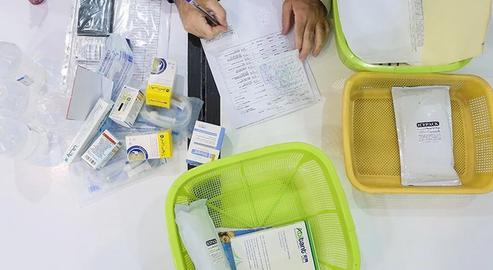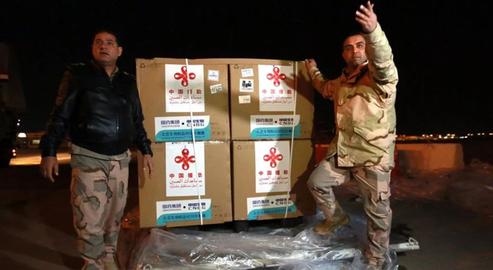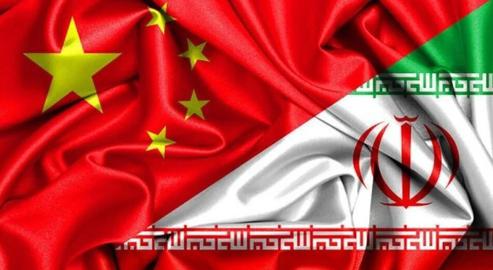For years now, the results of corruption in the Iranian drug market have been linked by officials to sanctions whenever they come up. Since the outbreak of coronavirus in Iran these debates have become even more heated than before.
At the top tier, sprawling parastatal holdings companies such as the Barakat Foundation occupy a central position in the market while sitting under the control of the Supreme Leader. But dozens of other companies, large and small, together with brokers and intermediaries, exist for no other purpose than to peddle high-cost drugs of questionable quality to Iranians – and some work hand-in-glove with government officials to do so.
Back in April 2020, a group of almost 20 experts and activists in the fields of medicine, pharmaceuticals and economics penned an open letter to Health Minister Saeed Namaki asking him to deal once and for all with corruption in the sector.
Among the issues raised in the letter were conflicts of interest, irregularities in determining medical tariffs and prices, foreign currency allocation, and the granting of production licenses to apparently unqualified individuals and entities.
A few days later, Namaki issued an order for the letter’s contents to be reviewed. This led to a team at the Ministry of Health being tasked with examining the state of the drug and medical equipment markets in Iran.
Finally, the unit has published its detailed report on the subject, entitled Detriments and Corruptions in the Country's Pharmaceutical System and published by the Presidential Center for Strategic Studies.
This comprehensive, five-chapter report lays out numerous examples of what it calls “collusion and bargaining, in which ethical principles and standards are easily violated at the expense of the safety of fellow human beings". Some of the worst forms of corruption blighting medical provision in Iran, as detailed in a report backed by the Office of the President, are listed below.
A Troubled System
The first chapter provides a broad overview of the state of the Iranian pharmaceutical industry. Importantly, it notes that pharmaceutical expenses account for 30 percent of health expenditure in Iran.
All in all, it says, some 2,900 different drugs are officially approved for use in the country. A total of 26,000 people are said to be employed in the industry in 116 factories and facilities, and 52 percent of drug ingredients and raw materials are imported.
The second chapter of the report offers a theoretical examination of issues such as conflicts of interest, domestic production, and the prospects for reforming Iran’s pharmaceutical system. The rest of the study is dedicated to listing examples of these issues.
Chapter Three of addresses systemic issues in drug development and distribution in Iran. "The current laws and structure,” it says, “have not been able to play their proper role as deterrents.”
Most importantly, it points to discrepancies in the structure and functions of the Food and Drug Administration, which officially exists to issue or deny licenses to providers wishing to bring a new product onto the Iranian market.
The FDA is accused of "performing administrative roles and tasks unrelated to the mandate of the organization", such as interfering in the level of foreign currency allocated to would-be drug providers, and undue interference in product pricing.
The FDA, the report says, has taken action in the past to “keep prices low” while ignoring the needs of the drug market. “The Food and Drug Administration refuses to increase the reasonable price of medicines simply by arguing that rising drug prices will put pressure on the vulnerable groups.”
In a single six-month period in 2019-20, around 2,500 billion tomans [$100m] worth of drugs were reportedly smuggled from Iran to neighboring countries. The low price of drugs in Iran is cited by this report as being the main cause, together with the “violation” of manufacturing and import-export regulations.
‘Golden Signatures’ Usher Questionable Drugs Into the System
The fourth chapter of the report details the causes of various "corruption bottlenecks in the pharmaceutical industry" in Iran. Here, corruption in the licensing process and the allocation of licenses “outside of the legal framework” is cited as a pivotal, damaging factor.
“Licensing and issuing permissions is a constant source of corruption,” the report says. “Depending on the value of the benefits, the size of the bribe varies."
It goes on to state: "Political relations and generating support are usually instrumental in facilitating the licensing process. This type of corruption includes licenses issued for the production of drugs and medical equipment to some former managers of the Ministry of Health, and production licenses obtained in the names of either themselves or their spouses and children."
Elsewhere, the report also says corruption in licensing has “easily” bypassed regulatory measures in the past, and "in some cases it seems that laws and regulations have been turned into a tool for enrichment by some authorities."
The authors add: “Permitting the entry of pharmaceutical drugs into the market without clinical trials, on the pretext of addressing special and incurable diseases, is another serious problem in the country's pharmaceutical system. Even some items which showed negative results in clinical trials have obtained a manufacturing license via ‘golden signatures’."
Government Handouts for Unnecessary Imports
"One of the areas of corruption in the country's pharmaceutical industry,” the fourth chapter states, “is related to determining the priorities for allocating government subsidies. In 2013, for example, a large part of the subsidy was allocated to imported growth hormone, and did not bring any income to producers.”
Meanwhile, the authors state, the importation process is also skewed by personal and profitable relations, with some companies able to import products and equipment without the necessary legal permissions. A core area of concern identified was their “parallel import” of products already being made inside Iran.
"In recent years,” the report states, “more than 40 percent of the foreign currency allocated to importing medicine was spent on import of products, some of which had up to 22 domestic producers. The dual-rate currency system, and unregulated imports in excess of market demand, have created such conditions for domestic drug manufacturers in which they can only survive if they enjoy political influence."
Expensive Drugs Pushed to Top of the Shopping List
Profiteering by pharmaceutical companies is also highlighted in the report, with the authors decrying what they termed “rent-seeking companies” that had “jeopardized the country's supply, prescription, and treatment structure... These firms determine which products are the most profitable, and then they consult on whether the product should be registered and prescribed by doctors."
For this reason, the report says, drugs for rare diseases, which are mostly imported and very expensive, now account for more than 32 percent of the total Iranian drug budget. It also claims that in 2017, the cost pressure of new drugs on the budget was so great that the Minister of Health was forced to shut down the committee tasked with reviewing and compiling approved drugs, so that no more expensive items would be registered.
"Pharmaceutical companies are now so powerful that they have in some cases been able to circumvent the regulatory process and lift regulatory control on the drug list," the report says. "Unfortunately, the power of pharmaceutical companies is so great that it has impacted on the public health supply chain, the selection and approval process, and the pricing and insurance coverage for drugs.”
Manufacturing Clinical Need
The last, ominous item on the report’s list of “corruption bottlenecks” is what it calls "induction of drug needs": the creation of a false demand for a given product in Iran.
“The management of the drug market is not based on the objective demand of the healthcare system, but on artificial need," the report asserts. “The means of entering the list of major new [approved] drugs encompasses over-the-counter prescription, smuggling, and sometimes the abuse of specialist patients' associations (such as organizing demonstrations by patients and their families)."
Politicians Unwilling to Change the Status Quo
The last section of the Health Ministry team’s report calls for a change of outlook to bring about the necessary changes. Reform, it states, will not happen without “political will” and “at a glance, the political will to reform this area is missing."
It goes on: "In combatting corruption in the country's pharmaceutical industry, policymakers must face up to a range of trade-off activities that either seek to legitimize their own benefits, or prevent reforms that could diminish their profits.
"Middle and senior managers in the public sector, and government institutions and their arms who have made large profits from conflicts of interest in the past and present, are more or less undisclosed. If there is a strong will in the governing bodies, the necessary legal action can be taken against them.
“Corruption has taken root in official institutions and has become a cancer. The staff and managers of the Food and Drug Administration should be barred from any involvement in business, and they must be prevented from being employed or holding shares in related companies, for a period of up to 30 years. All profits obtained from these actions [in the past] should be subject to repossession."
For the first time, this report has examined each and every known facet of corruption in the medical sector in Iran. What is missing is any discussion at all of international sanctions, which in the past 12 months Iranian officials have repeatedly used to explain away shortages and “bottlenecks” in drug availability and provision. In other words, the lifting of sanctions by itself, in the view of the Office of the President, will do nothing to alleviate the issues at hand.
Related coverage:
Fresh Row Over Sanctions as Record Haul of Smuggled Drugs Seized on Iran-Iraq Border
Iran’s Medicine Shortage: More About Corruption and Mismanagement Than Sanctions
visit the accountability section
In this section of Iran Wire, you can contact the officials and launch your campaign for various problems


























comments